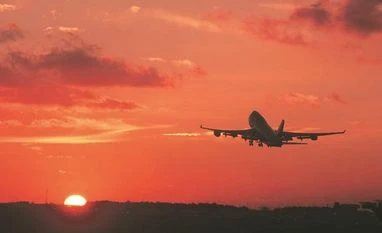Aviation stocks InterGlobe Aviation (IndiGo) and SpiceJet gained 5-7 per cent each on Thursday after the government announced plans to open up domestic air travel from May 25. This move came as a relief for airline companies, which have not flown a single flight for the last two months even as they incurred fixed costs.
The resumption in air travel, however, will be limited as companies can only operate a third of their capacity. Further, fares charged to customers will be in a certain band, based on the route and distance.
Despite the limited number of flights and price restrictions, analysts believe fares are yield-accretive for airlines. For a Delhi to Mumbai flight, the fare bracket, including taxes, would be Rs 4,500 to Rs 11,500.
“Yields from a Delhi-Mumbai flight would be fairly attractive if Rs 6,000 is the average fare. Yields would be over 37 per cent of the current yields, which are Rs 4 or below,” says an analyst at a domestic brokerage.
What should help airlines is the sharp fall in the price of aviation turbine fuel (ATF) which accounts for 40 per cent of sales. The domestic ATF price has dropped 65 per cent from the February level to Rs 22.7 per litre in May, with a similar cut effected in the international ATF price. In this regard, the recent steps by the government, especially related to airspace management, should help improve the average aircraft utilisation rates and reduce fuel expenses, which account for 35-40 per cent of sales. Motilal Oswal Securities estimates a 5 per cent change in aircraft fuel savings will translate into an earnings per share change of 20 per cent for IndiGo. The other positive is the expectation of a sharp uptick in load factors in the initial week because of the demand built up during the lockdown.
However, despite attractive yields and expectations of higher load factors, analysts believe airlines will probably not make money with only one-third of their capacity operating while paying for costs. Though most airlines have announced cost-cutting measures, such as headcount and employee cost rationalisation, they have to contend with other fixed costs, such as lease rentals and corporate expenses.
The bigger worry for the sector, however, is the demand trend after the initial few weeks. Analysts believe with half the demand being discretionary (leisure travel) and corporates conducting their business over virtual meetings, reaching load factors existing before the Covid-19 outbreak will take at least three to four quarters.
With only a gradual opening, airlines will have to rejig their plane portfolio by surrendering leases which are expiring and not adding planes which were part of the plan for FY21. IndiGo and SpiceJet had plans to replace 126 and 30 of their older aircraft, respectively, with newer ones and thus saving 15 per cent on fuel, say Ashish Shah and Vaibhav Shah of Centrum Research.
While this should help, analysts at Kotak Securities say given cost pressures, companies’ ability to manage fixed costs will be the key to survive the event. They add while Indigo’s sufficient cash buffer (Rs 9,400 crore as of December 2019) should be enough to weather this storm, other airlines will need external support in the form of interest payment moratorium and lower taxation on crude and other imports.
Enable GingerCannot connect to Ginger Check your internet connection
or reload the browserDisable in this text fieldEditEdit in GingerEdit in Ginger×
Unlock 30+ premium stories daily hand-picked by our editors, across devices on browser and app.
Pick your 5 favourite companies, get a daily email with all news updates on them.
Full access to our intuitive epaper - clip, save, share articles from any device; newspaper archives from 2006.
Preferential invites to Business Standard events.
Curated newsletters on markets, personal finance, policy & politics, start-ups, technology, and more.
)